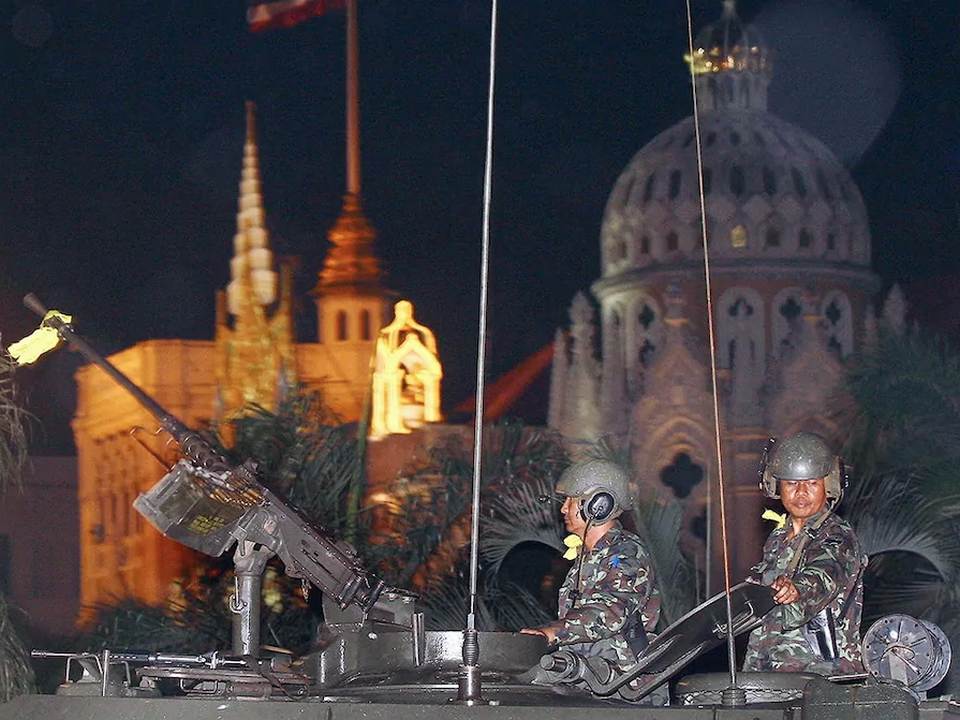
On nearly any definition there was an attempted coup d’etat in Washington DC on January 6, 2021. Certainly a lawfully elected president attempted to prolong his grip on power by promoting illegal and violent means. For the first time since 1814, when British troops went on a burning expedition, the “cradle of American democracy” escaped the same fate by a hair’s breadth. But success for Trump was always near-impossible.
Thai political history since 1932 provides most of the answers. A successful coup primarily requires the collective army leadership either to engineer the putsch or to support it. Thailand has experienced 20 attempted coups with 12 succeeding in toppling the government of the day. The eight which failed all had one common element: a divided military as instanced in several futile attempts in the 1980s against premier Prem Tinsulanonda. The last three successful coups – in 1991, 2006 and 2014 – were led by top army commanders and were more or less bloodless. In 2014 it was not even necessary to roll out the tanks to surround government buildings in Bangkok.
Moreover, successful coups must be imposed very quickly. Immediate control of government buildings and of media stations, at any rate in the capital city, is essential. Free movement has to be made impossible for political party leaders. The whole point of armed troops appearing in big numbers on the streets is to indicate that the drama is over and that opposition is pointless. Overnight curfews in a large country such as Thailand serve the double purpose of limiting public movement whilst ensuring that troops could be dispatched quickly on empty roads to distant provinces.

Of course, Trump’s self-coup attempt was neither engineered nor supported by the US armed forces. Indeed, the president seems to have done his best to delay the calling out of the National Guard after local police were overwhelmed by the mob breaking into the Capitol complex. We now know that the highest generals in the Pentagon were not willing to assist Trump. In recent days it has even transpired that the president, even though supreme commander, does not have control of the nuclear buttons because of military-brass fears he might act irrationally.
Thailand has experienced very few self-coups. An exception was in 1958 when Field Marshall Sarit Thanarat staged a successful coup against his own government to get rid of people he did not like. Similar self-coups occurred in the Philippines in 1982 when President Marcos declared martial law and abolished the constitution and in South Korea in 1972 when President Chung-hee did something similar. So many self-coups have occurred in Latin America that there is even a Spanish term for them: “autogolpe.”
By contrast, Trump’s failed putsch seems to owe more to the disastrous attempt in Turkey in 2016 when a group of politicians and junior military tried to remove President Erdogan. But they lacked majority support in the country, were opposed by the senior military and even failed to close down state radio and television stations in double quick time. They also overlooked the necessity to capture Erdogan who was able to communicate with all Turks through the cell phone of an assistant.
It is impossible to know what was in Trump’s mind. Maybe his plan was simply to delay the confirmation of the November 2020 election results. More likely, a better-organized and more destructive assault on the Capitol might have given him the opportunity to declare martial law and rule by decree. But his final gamble always lacked the key ingredient of support from the state’s armed forces. As the Roman emperor Nero uttered on his death bed, “You cannot rule Rome without the Praetorian Guard.” Donald Trump has obviously never read the ancient historians. Was too busy on Twitter.





